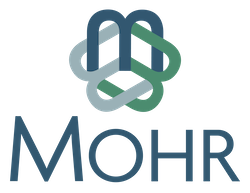
Effective advocacy isn’t just about showing up when legislation is on the table, it’s about building lasting relationships with lawmakers who understand your work, value your mission, and support the people you serve. The quieter months of summer and fall offer the perfect window to engage with legislators before the bustle of the next legislative session. Whether you're new to advocacy or looking to deepen your impact, the strategies below can help you connect meaningfully with your elected officials and amplify your voice in disability policy.
1. Host a Site Visit or Open House
Invite your legislator to visit your facility or attend a community event. This gives them a first-hand look at:
- The services you provide
- The dedication of your staff
- Potential Medicaid impacts to people served and staff
- The real-life impact of policy decisions on people with disabilities
Tip: Use the visit to highlight both successes and challenges, such as workforce shortages or funding needs. Legislators’ schedules during session can be very busy, so summer and fall are often ideal times to host visits. It’s always better if the first time your legislator hears from you isn’t when you need something; establishing familiarity beforehand builds a strong foundation.
Also, if possible, share simple data on how many people you serve and employ in that legislator’s district. Even rough estimates are helpful, especially if they only represent a portion of your service area.
2. Attend Legislative Town Halls with a Disability Focus
Show up at public forums and bring a disability services perspective. You can:
- Ask questions about funding, waivers, or workforce issues
- Share how legislation affects people with disabilities and support staff
- Offer to be a resource on disability-related policy
Tip: Bring a person with a disability or family member to share their story if they’re comfortable—it’s powerful and memorable. You can also invite your broader network such as board members, county commissioners, or local business partners to participate. You may discover that someone already has a personal connection to a legislator and can help open doors.
3. Schedule a One-on-One Meeting at Their Office
Use the summer recess to meet with your legislator or their staff.
Discuss:
- Specific policy needs (e.g., DSP wage increases, waiver reform)
- Data and stories from your organization
- Ways they can support disability services in upcoming sessions
Tip: Bring a short, clear handout summarizing your key points. If you can, include local impact data such as how many individuals you serve and employ in their district. That personal connection to their constituents is compelling.
4. Send a Personalized Thank-You Note
After a meeting, event, or vote, send a handwritten or emailed thank-you note. This helps:
- Build a positive, ongoing relationship
- Reinforce your message and appreciation
- Keep your organization top of mind
Tip: Mention something specific from your interaction to make it personal and memorable. Strong relationships are built over time starting with sincere gratitude and continuing through consistent, proactive communication.
5. Share Impact Stories on Social Media and Tag Legislators
Use your organization’s social media to:
- Highlight success stories and challenges
- Thank legislators for their support
- Encourage community engagement
Tip: Tag your legislators and use hashtags like #DisabilityServicesMN, #MOHRMatters, #SupportDSPs to increase visibility. This not only showcases your work but keeps your organization in front of legislators and their staff in a public, positive way.
Advocacy is not a one-time event, it’s a year-round effort that builds trust and understanding over time. By taking even one small step each year like attending a town hall, hosting a visit, or sending a thank-you note you contribute to a stronger, more informed partnership with the people shaping disability policy. Set a goal to do one more thing than you did last year, and keep growing your impact. Your voice matters, and your work is worth championing.
